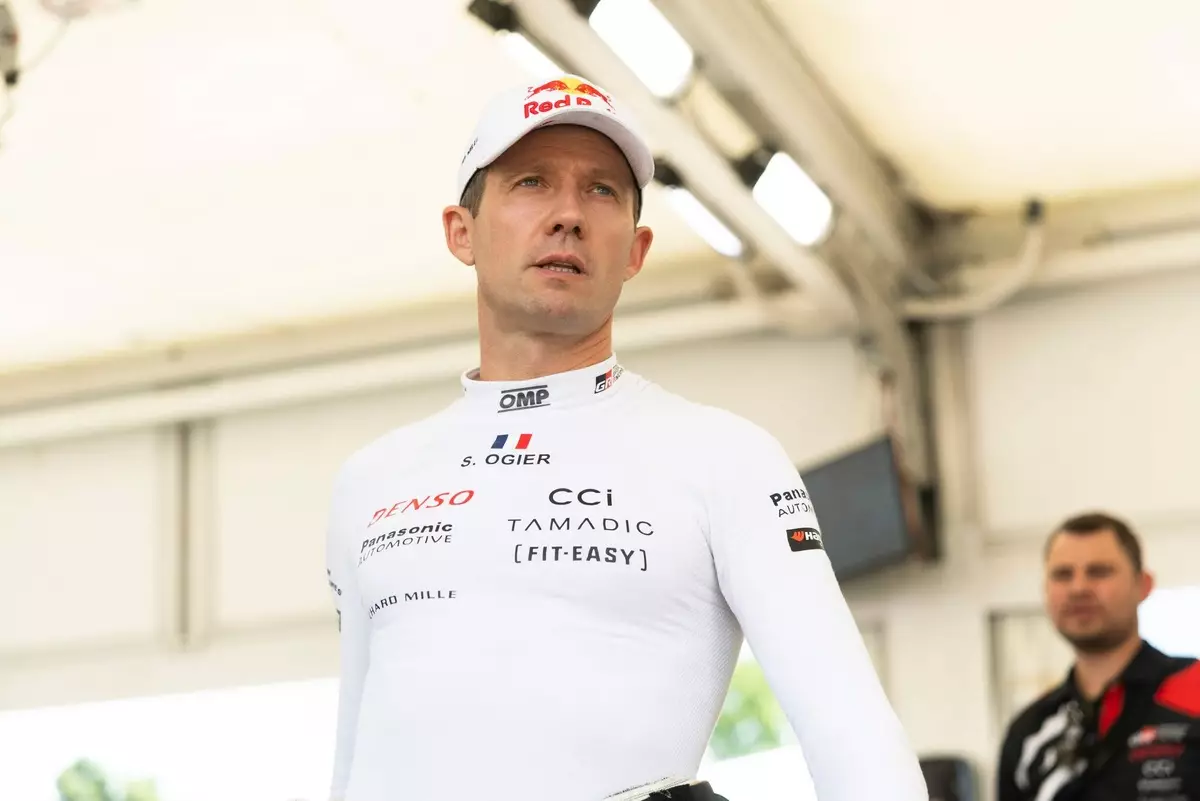Sebastien Ogier’s recent performance in the World Rally Championship (WRC) stands as a testament to his enduring talent and strategic acumen. With three victories and two near-misses in just five rallies, his impressive points tally underscores a consistency that many drivers would envy. Despite missing three events, Ogier’s stellar results have positioned him admirably close to the championship lead, revealing a level of competitiveness that challenges the notion of what a seasoned veteran can achieve with limited participation. His average of 28 points per rally is not just impressive—it’s a statement of deliberate excellence, illustrating his ability to maximize every opportunity. Ogier’s success questions the conventional wisdom that full-time presence equals success; instead, it highlights how experience, strategic selection of events, and raw skill can forge a winning formula. His situation becomes an intriguing case study in how focused efforts in select races can rival full attendance strategies, potentially reshaping team approaches and driver commitments in the future.
Seeking More Than Just a Personal Milestone
While Ogier admits his primary focus remains supporting Toyota’s overarching goals, his refusal to completely dismiss a championship bid reveals a complex personality rooted in competitiveness and curiosity. It’s rare to see a driver of his stature openly entertain the idea of extending his campaign beyond a partial schedule, reflecting a mindset that refuses to tarnish his reputation as a relentless competitor. His openness about potentially contesting more events if his form persists indicates a nuanced understanding of his own capabilities and the evolving dynamics of the championship. Ogier’s approach signifies an evolution in how seasoned drivers can influence their careers—moving from a fixed narrative of retirement or limited engagement to one that sees opportunities for further glory emerge from strategic participation. This perspective pushes the boundaries of driver longevity and challenges teams to optimize resource allocation and event planning, as Ogier’s example demonstrates that success at the highest levels can still be forged outside the traditional full-season model.
The Strategic Calculus Behind Ogier’s Potential Campaign Extension
Ogier’s considerations are not solely about personal glory but are deeply entwined with the broader objectives of Toyota, which aims for both individual and constructors’ championships. His decision to possibly contest more rounds is rooted in the pursuit of consistency and maximizing points—an approach that could influence how teams and drivers plan their seasons in the future. Notably, his role in last year’s campaign, where he contributed to Toyota’s eighth constructors’ crown despite a partial schedule, showcases how strategic partial campaigns can yield significant results. Ogier’s willingness to adapt his schedule based on prevailing circumstances and team needs demonstrates a flexible approach that combines personal ambition with altruistic team support. As rally racing evolves with new technologies and more dynamic driver-team interactions, Ogier’s strategic thinking could serve as a blueprint for others considering a blend of selective participation and championship aspirations.
Future Possibilities and the Spirit of Competition
There is an undeniable spark of competition flickering beneath Ogier’s calculated remarks. His acknowledgment that being close to the lead “is no surprise” for someone of his caliber, despite missing several rallies, hints at an internal drive that refuses to fade. If his form sustains itself, it could ignite a new chapter in his storied career—one where he leverages his experience and talent to go head-to-head with current leaders in a more sustained fashion. The potential to extend his campaign and challenge for the title signals a shift in rally dynamics, emphasizing that age and partial participation are not definitive barriers to victory. Ogier’s ambition remains palpable; his attitude suggests that the spirit of relentless pursuit can coexist with strategic restraint. His openness to doing “more events” toward the end of the season, if results remain favorable, could inspire a new generation of drivers to reconsider how they plan their careers—seeing smaller, targeted campaigns as viable roads to greatness.
The Larger Impact on Rally Racing’s Future
Ogier’s stance may initially seem like an individual strategy, but it resonates as a catalyst for wider change in the sport. If drivers, teams, and organizers start embracing flexible participation models, rally racing could become more adaptable, competitive, and unpredictable. Ogier’s blend of experience, strategic thinking, and ambition embodies a modern approach that might redefine what it means to be a successful rally driver. Instead of fixed-season commitments, the sport could evolve into a more dynamic landscape where selective participation, calculated risk-taking, and sustained excellence become the new norm. This evolution not only enhances the drama for fans but also challenges existing paradigms about training, resource allocation, and athlete longevity. Ogier’s example points toward a future where versatility and strategic mastery could redefine how greatness is achieved in rally racing, opening the door to a more inclusive yet fiercely competitive era.


Leave a Reply